At some point, all of us have to make a strategic retreat. We can’t just keep pressing forward all the time. It’s not practical.
Not to overdo the military analogy, but our lives are like one relentless campaign. There are times when we’re charging full speed ahead, guns blazing. There are times when we’re kind of in neutral, taking stock of the threats that face us. And there are times when, whether we like it or not, the threats become too great, or we’re surprised by some sort of flanking maneuver and we’re forced to take a few steps back, to retreat, even if it’s just a bit, and even if it’s strategic.
And for those of us who fish, the retreat is usually to the water, be it a river, a bonefish flat or even the local farm pond. The river is a refuge, a place where the threats can’t touch us. It’s the cathedral in the face of encroaching vampires. The bomb shelter. The impenetrable bunker.
I’ve had to retreat some over the years. Divorce. Financial stuff. Hell, even a flat tire drops you down a gear, you know? But now, for the first time in years, I’m in full retreat, running like hell for the river. I’m running so far and so fast that I won’t stop until my fly line stretches out over the cold, foreign waters of southern Chile.
This time around, the emerald waters of Patagonia are my cathedral, because the vampires are bleeding me dry.
And it’s been a slow suck, honestly. I didn’t notice it at first, because it was subtle. Then it became … less subtle. And then it delivered a haymaker right to the chin.
Such is life, right? One minute, you’ve got a plan and plan to execute the plan. The next minute you’re trying to figure out what’s going to happen next, and if you can survive the suspense.
And the first thought after getting up off the canvas is, “Jesus, I need to go fishing.”
So off I go. And don’t think I don’t appreciate the fact that, during a time of crisis, I get to board a plane and some 24 hours later land in Santiago, one step closer to Patagonia and to its wild and exotic trout. It’s still fishing. It’s still soul-replenishing. It’s still a retreat — it just takes longer to get to. And the fish are bigger.
I remember, years ago, as a teenager in East Texas, my father’s job was eliminated thanks largely to the plummeting price of oil -- he was a manager for a drilling company, and when the work was on, it was really on. But when a drilling company has rigs stacking up in the yard, it’s the middle-management folks who get the ax first. And my dad got the ax — one day, we were a flourishing family of five with a ski boat parked at the lake and a nice pool in the backyard. The next, we were living hand-to-mouth.
To his credit, though, we kids never really noticed a huge difference. He immediately grabbed a job with a consulting firm that sent him all over the country -- a job he hated, by the way. But that was his “retreat.” He had to take a job he didn’t like so the rest of us could continue to matriculate, high school was upon me, and a spot on the varsity basketball team was there for the taking. My younger brothers were still in elementary school and junior high when that first forced retreat hit us.
A couple years later, my parents split — another retreat, and this one wasn’t so easy to ignore. The cruel game of “pick a parent” was left to my brothers. I was old enough to strike out on my own.
But I remember, even then, arriving back home in Colorado from our “retreat” from Texas, that one of the first things I did was grab a fishing rod and disappear into the Rockies for a few days with my grandfather. That was my own retreat — a much-needed reminder that, when my soul needs mending, it’s best done with my feet atop freestone boulders and cold, clear water running around my knees.
These days, on the downhill side of just about any life marker (age, career, etc.), the retreat is a bit more pointed. It starts with heartbreak and disbelief. Anger comes next. Then some shame for good measure. Finally, realization.
And then, fishing. Because that’s where the regrouping happens. That’s where the map of a lifetime is spread out and a good bottle of Irish whiskey is placed on one corner, just to keep the winds of chance from futzing with it any further. That’s where the next plan gets made — between roll casts to a big brown who doesn’t know I’ve spotted him hiding behind a rock across the river. The next advance, that plan gets made over cocktails at the lodge, where like minds commiserate and bigger brains than mine chime in with advice and, if I’m lucky, opportunity.
But it all starts with that necessary retreat, as unfortunate as it has to be. Often, we have to take that step back. We have to accept the things we can’t control, no matter how sad and ill-timed they are.
I’m retreating to the Andes this time around — to rivers I’ve yet to fish. But they’ll work as I make a new plan. The fish that swim in them, through no small sacrifice, will help knit a tattered soul, one that was frayed and tired, to be honest. Its loose ends were ripe for the tug, and when they were pulled, it unraveled, and it wasn’t pretty.
But now … I’m going fishing. And it’s going to be all right.

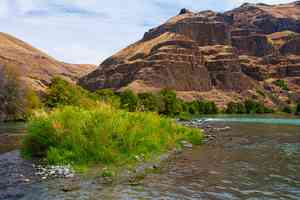

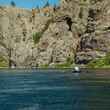
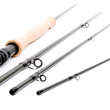
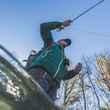
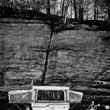
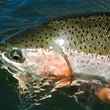
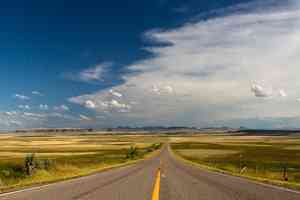

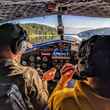
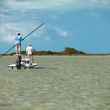
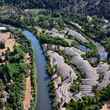
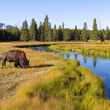
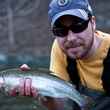
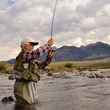
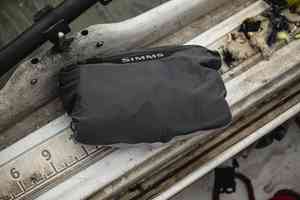
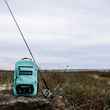
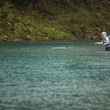
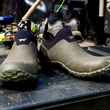
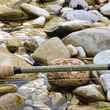



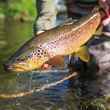
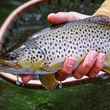


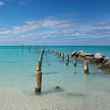
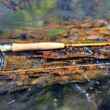
Comments
Larry Barrigar replied on Permalink
Chris, So well written! And it will be OK.
Kerry M Gubits replied on Permalink
Dude, I've been there. Well said. So nice to read some real stuff. No chest beating, no fantasy envy, no ego display. May the fish gods bless your every cast.
Andrew Winton replied on Permalink
I can so relate to this article, I have been fighting cancer for the last 3yrs and the thought of going fishing has kept me going. I at one stage was confined to a wheelchair and I vowed to myself that I would one day wade my beloved river frome (in the uk) again, 6 weeks ago I achieved that and caught 5 beautiful grayling .
I now face another event from which I will retreat, my 9yr old labrador is almost certainly dying, the vets have no idea what is wrong with him, he is comfortable at present so I am off to my local lake for a bit of contemplating and maybe a few trout. Andrew
Kent. Sanders replied on Permalink
Why is it important that “We Stand for the Waters We Stand In”? Why is it important that we stand up for wild fish?
Since COVID more Americans have sought refuge/spiritual renewal in wilderness and despite concerns of “loving to death” our national parks and wilderness areas, any temporary degradation/abuse from the influx of humanity is a small price to pay for the inestimable benefit that wilderness will (or at least should) receive from a greater appreciation of wild places and wildlife. It’s true that people only protect what they love, and stressful times have a way of focusing one’s priorities and showing what really matters amongst all the daily stresses and struggles that more and more consume our modern life.
Human populations are increasing exponentially everywhere and the elbow room, clean air, clean water, and basic equity we formerly took for granted are disappearing not just for wildlife, but for all of us on this slightly less blue spaceship. America is blessed to have as much wilderness as we do. It’s running out globally from the burning Amazon, drowning Pacific islands, shrinking African parks and reserves, to the soon to be logged last 2% of Canadian old growth forest. The fact is that most of the American wilderness is itself less wild than it was even a century ago thanks to federal and state leasing to extractive industries and livestock grazing. The dewatering of wilderness to supply the growing thirst of western development is ongoing and as contentious as ever thanks to climate change and the new normal of drought.
It’s no accident that corporate wild land usage and its consequences aren’t well known to a public that until recently may not have experienced the physical and psychological/spiritual benefits of wildness. Cooperate shareholders and their predatory C-suite minions, lobbyist money launderers, and occasional government infiltrators (a la Scott Pruitt and others) have made an industry of extracting and marketing the resources for their own enrichment while claiming to serve a vital need for the country, but in reality doing so at the country’s ever growing expense. Congressional “re-election contribution” recipients aren’t plugging toxic mine runoff or in most instances even pretending to require mining companies to implement clean water protection or land restoration once they’ve gone bankrupt and skipped out of the unfunded reclamation plan. The cadmium, hydrocarbon seep, erosion, stream and soil contamination is what we get. And it’s not just where we recreate but more frequently even right where we live. Surprise! We’re the trout in silty shallow and overheated water now and the green shady places to which we escape are shrinking. If you’ve ever evacuated for a hurricane/ forest fire/ tornado/power outage than you’ve had a taste of how wildlife survives.
Now I’ve always been an outdoorsman and felt a connection to the land, and the wilder and less peopled the better. Time spent thigh deep in cold water fishing (but really just dematerializing into the environment) is cherished and I’m convinced doesn’t count against the otherwise nonstop trickle of sand from my hourglass of existence. I love it. More importantly I know that if I don’t pay attention and protect it, I’ll lose it. We’ll all lose it. Everything changes and my wilderness experience today is nothing like my grandfather’s. Much has already been lost and the rate of modern loss is exponentially faster. Global warming more than anything else is teaching humankind in the hardest way that we’re all in this together and the days of letting someone else worry about it are over. The future requires all of us to protect what we love--- now.
Pages